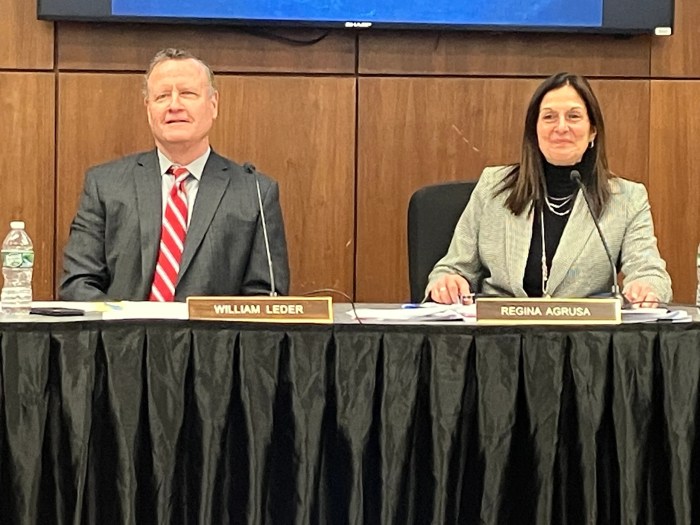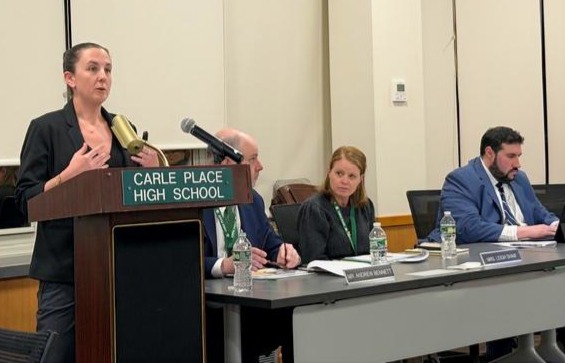With the start of the school year right around the corner, tutoring is top of mind. But, with so many options – virtual, brick-and-mortar tutoring centers, school support centers, past teachers – it can be hard to know what’s most helpful for your kids. Or, when they should get started.
Studies, tutoring providers, and local teachers say a few tutoring sessions before the school year starts can help set students up for the upcoming semester and combat the “summer slide,” during which kids can regress in their knowledge while spending a few months out of the classroom.
Jessica Liakonis, a fifth-grade teacher in the East Williston School District who has been tutoring for nearly two decades, said many students really benefit from a few refresher sessions before the school year starts.
“It’s refreshing some skills from their previous year, going over what they’re confident in and then filling in their learning gaps,” Liakonis said of what her back-to-school sessions look like over the next few weeks. “I’m going to prepare them for the first month of [the school year], because I know the curriculum they’re going to learn. It just kind of gets them back in that swing of things, in the right mindset.”
Otherwise, Liakonis said the parent-teacher conference period is one of the best times to connect with your child’s teacher, find out where they might need help and find out who can provide that help.

In terms of whom to turn to for tutoring, Liakonis says looking within your child’s school is frequently the best way to go. She said it can ensure they are taught according to the curriculum and skills they’re expected to perform in the classroom and don’t get conflicting messages.
“Some don’t necessarily align with the same type of teaching that’s in schools,” Liakonis said. “I’ve seen that become a problem where parents are realizing that online teaching, or Khan Academy, things like that, is teaching their students how to do something differently than they’re learning at school.”
She said that can be most common when kids receive outside math tutoring, as some common core curriculum doesn’t simply grade students on getting the right answer, but also the way they get there. People who are teaching in the classroom also tend to have more training on scaffolding curriculum, she said.
“Getting tutored by a teacher, whether it be a teacher that you knew, a teacher that you had, or you seek out a teacher, those teachers are certified and trained,” Liakonis said. “They’re trained in child development, they’re trained in differentiating instruction, they’re trained in curriculum standards. They recognize the learning gaps more quickly, and I think they know how to scaffold instructions and meet a student’s individual needs, rather than when they come into a testing or tutoring center.”
If you don’t know how to find a teacher that offers tutoring at your child’s school, Liakonis recommends reaching out directly to your student’s teacher for recommendations or the school’s main office, which may have a list of all teacher tutors, what subjects they specialize in and what grade levels they serve.
In terms of online tutoring, she said it shouldn’t be written off completely, but meeting in person can prevent distractions and give kids a break from constantly looking at screens.
If you’re looking to turn to a brick-and-mortor tutoring center over past teachers, Nassau has plenty to offer.
There’s Precision Academic Tutoring in East Williston, Expansion Care in Williston Park, Beyond the Test in Massapequa, Mathansium locations across the island in villages like New Hyde Park, X and Y and Sylvan Learning spots in Mineola and Port Washington. There’s also TestTakers Port Washington, Literacy Nassau in Wantaugh and C2 Education in Jericho.
No matter who you turn to, Liakonis said, what’s most important is that your kids feel comfortable with them so they’re not afraid to ask questions or make mistakes and that the tutor helps build their confidence.
“Being comfortable with the tutor is the most important thing. If they’re not, they’re not going to really academically take risks with them,” Liakonis said. “If they’re not comfortable, that’s a red flag. You need to find someone new.”
“Past that, it’s all about identifying and filling gaps, preparing students for new curriculum and encouraging that positive academic mindset,” she continued. “I think personalized encouragement from a tutor can really shift a student’s mindset from ‘I can’t’ to ‘I can,’ especially for those who had a tough previous year and are not looking forward to the new school year.”
Read more: My Spectrum school in Port Washington redefines early education with child-led learning






























